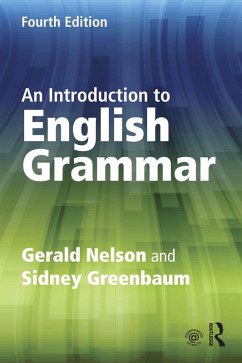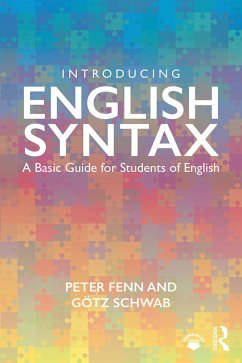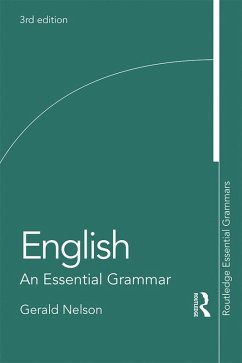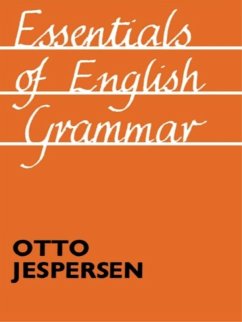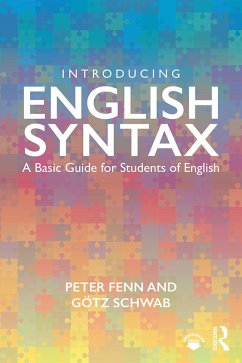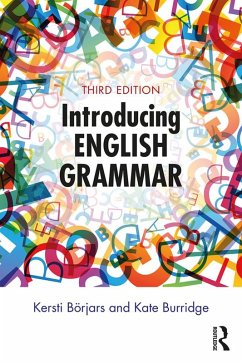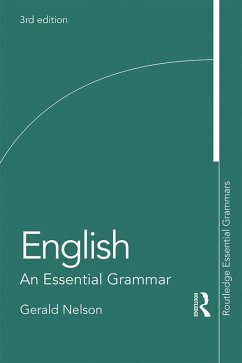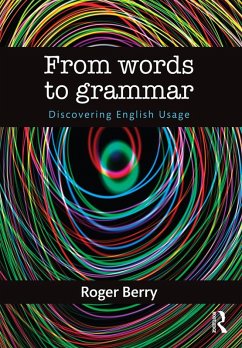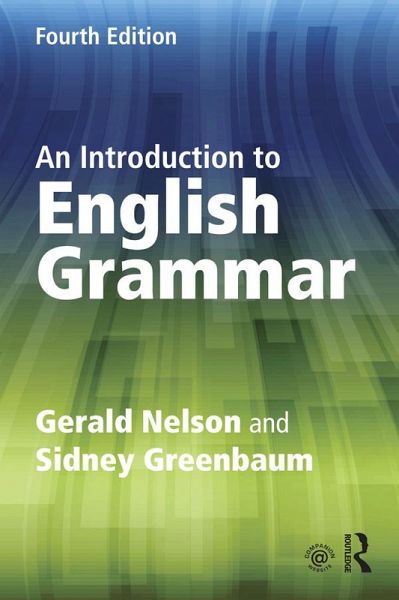
An Introduction to English Grammar (eBook, ePUB)
Versandkostenfrei!
Sofort per Download lieferbar
48,95 €
inkl. MwSt.
Weitere Ausgaben:

PAYBACK Punkte
24 °P sammeln!
An Introduction to English Grammar provides a comprehensive overview of all aspects of English grammar. The first part of the book ('The Grammar') provides a step-by-step introduction to the key topics in English grammar. The second part ('The Applications') shows how a grasp of these topics can be helpful in resolving usage problems, in developing a clear writing style, and in mastering punctuation and spelling. A whole chapter, 'English in Use', is devoted to illustrating the grammatical features of a wide range of modern text types, including emails, Facebook pages, and 'tweets'. It also lo...
An Introduction to English Grammar provides a comprehensive overview of all aspects of English grammar. The first part of the book ('The Grammar') provides a step-by-step introduction to the key topics in English grammar. The second part ('The Applications') shows how a grasp of these topics can be helpful in resolving usage problems, in developing a clear writing style, and in mastering punctuation and spelling. A whole chapter, 'English in Use', is devoted to illustrating the grammatical features of a wide range of modern text types, including emails, Facebook pages, and 'tweets'. It also looks at the special grammatical features of English in everyday conversation.
Each chapter is followed by two sets of exercises. The first set can be used in self-study or in the classroom. The second set deals with more advanced topics, and can be used for classroom discussion or essay writing.
This fourth edition has been fully revised and updated and includes:
Assuming no prior knowledge of English grammar, this book is ideal for beginning students on a one-semester course and provides everything a student needs on the theory and practice of English usage. A comprehensive Glossary of grammatical terms is included and a website provides invaluable additional exercises.
Each chapter is followed by two sets of exercises. The first set can be used in self-study or in the classroom. The second set deals with more advanced topics, and can be used for classroom discussion or essay writing.
This fourth edition has been fully revised and updated and includes:
- clearer descriptions and improved presentation
- new material on word structure and word formation
- new exercises, examples and extracts
- updated further reading
Assuming no prior knowledge of English grammar, this book is ideal for beginning students on a one-semester course and provides everything a student needs on the theory and practice of English usage. A comprehensive Glossary of grammatical terms is included and a website provides invaluable additional exercises.
Dieser Download kann aus rechtlichen Gründen nur mit Rechnungsadresse in A, B, BG, CY, CZ, D, DK, EW, E, FIN, F, GR, HR, H, IRL, I, LT, L, LR, M, NL, PL, P, R, S, SLO, SK ausgeliefert werden.




